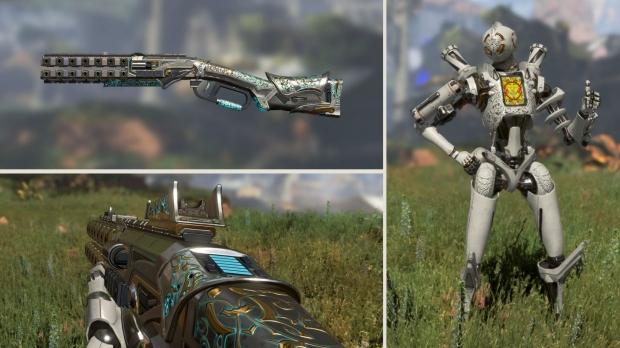Apex Legends developer Respawn is in the hot seat right now for over-monetizing the battle royale shooter with a $170 axe. After lots of pushback from the community, the game's project lead sparks more outrage with some rather choice words.
According to Apex Legends Project Lead Drew McCoy, most players are freeloaders who don't actually pay anything. The new Iron Crown Collection event that kicked off this fiasco was an experiment to see how much Respawn could make. Not a lot of people are buying Apex's lootboxes and skins, McCoy says, and the team is looking for new ways to make money on the free-to-play BR sensation.
The skins probably won't ever become any cheaper, either. McCoy says a price drop wouldn't "move the needle" and the game may not be viable without its higher cosmetic pricing. "There is a wealth of data available on how monetization works in free-to-play games, and we ourselves have run tests by putting skins on sale in the store. The amount of people who spend is crazy low, most of ya'll are freeloaders (and we love that!) and a change in price doesn't move the needle," McCoy said.
"The data is very clear. We would make substantially less money [by lowering skin costs], to the point where the game might not be viable."
The Iron Crown event of course backfired on the heels of bad press that exposed its exploitative push for monetization spending. The experiment, which required gamers to buy literally every item in the event to get the ultra-rare axe, failed miserably.
Considering EA plans to support Apex Legends for the next 10 years, hitting these kinds of hiccups so fast is pretty worrying.
McCoy's words could also have a tremendous ripple effect on how investors and analysts see Apex Legends.
The dev indicates that not a lot of people are actually spending in Apex, which sends lots of signals to brokers. In short, McCoy's words could affect a buy, hold, or sell rating from key analysts and affect EA's stocks.
Sure gamers are spending time, but not much money, which says the game's huge engagement isn't being properly monetized. This led to a weird and fractured event that was seemingly built completely around microtransactions.
EA itself recently said Apex was a tremendous driver for its $504 million in Q1 live service earnings, and that the publisher has big plans for it in the future. If these plans include more intense monetization tactics, the game will be hit with yet another controversy. EA is no stranger for controversies like this--it sparked a huge anti-lootbox movement with 2017's Battlefront II--but Respawn isn't adept to weathering this kind of storm.



